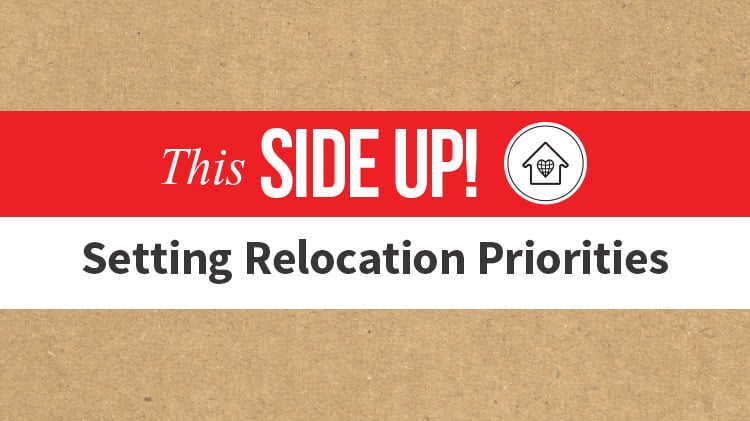The weeks leading up to, during and after a relocation can pass by in a blur – packing, unpacking, organising and preparing your family is often physically, mentally and emotionally draining. Often during this time, you are so busy you don’t give thought to how you are feeling, coping and adapting. At first, it can feel a little like an extended holiday as you spend your days and weekends having amazing new experiences.
And then one day you wake up and these questions start coming into your head:
“What just happened? Where am I? Who am I? And what happens now?”
Suddenly it’s not so exciting or fun. It could be that the little quirks, challenges and cultural differences that seemed so charming when you first arrived now feel like obstacles and annoying barriers to your happiness and fulfilment. Suddenly you feel lonely and isolated, as if you are caught somewhere between your old life and new one. If you are reading this and thinking, “YES! This is how I feel!” I have good news for you – it WILL get easier.
Here are 10 top tips to a successful transition:
1. Know that what you are experiencing is completely normal. What starts as an exciting experience can often lead to a period of time that is uncomfortable. As you acclimate to your new community, opportunities and enjoyment increase. Be gentle and patient with yourself. Understand that the transition is not a linear process. You likely won’t seamlessly flow from one step to the next. It’s more like a roller coaster, with ups and downs and highs and lows.
2. Take great care of you. What are your needs? What are your priorities? What are your goals? Establish a routine and re-engage in your hobbies, interests and family activities to keep the “normality” going. Accept that you can’t replicate your old life, but you can create new traditions, find new activities and explore new career options to build a rewarding life while on assignment.
3. Fully research your new city. Ideally you will have found some information before the move to prepare yourself for key things, such as local customs and language. Here are other things to keep in mind:
- Where are the schools, shops and entertainment facilities?
- What’s the annual weather like?
- What forms of transportation do people use?
- Are special legal, health or tax documents needed?
- Are there different expectations at work?
- Are there facilities and resources for your family’s needs?
4. Communicate carefully with others. Not only are you transitioning to new surroundings, but also others are trying to get to know you. In our place of origin, much of how we act and communicate is through shared meaning; however, in your new location, nuances of behaviour can be very different. Learn to listen deeply to everyone around you to be clear on what is said. Don’t let communication be a barrier. If you are not sure what someone means, ask!
5. Create a strong community around you. Take time to deepen the healthy relationships you currently have and create positive ones in your new community. Don’t be afraid to say, “I need your help”. Many people welcome the opportunity to support others, particularly if they clearly know what it is you need. Having a strong community of positive people can make all the difference in an intercultural transition. Get involved in your new community – through school, work colleagues, local projects, theatre groups, choir, historical societies, church, arts, sports, voluntary work or language classes. Whatever it is, get involved.
6. Avoid negativity. Stay positive with yourself and with those around you. Don’t focus on the problem. Instead, focus on finding the solution. Consider what you CAN do to change your perspective on the situation.
7. Look forward instead of backward. Often when we move, we remember ‘the good times’ of our former location. While it is nice to cherish those memories, be present and move toward your new goals. Don’t spend too much time comparing ‘there’ and ‘here’. Keep looking forward to move forward.
8. Set goals for yourself. Before moving, create goals that are a true reflection of who you are, what is important to you and what you want to get out of the global assignment. Make them clear, realistic and fun. Write them down so that you can revisit them. Work with your IMPACT Group coach and use the Action Plan you developed together to stay on track. As you transition to your new life, break those goals down into achievable tasks.
9. Stay in touch with your IMPACT Group coach. Your coach is here to support you however you need. Tell us if you are having a rubbish day, if you can’t find your motivation or if it all just feels too hard. We understand. And we can help you make sense of it and push forward to the next step.
10. Above all, find opportunity in every event. Look for the silver linings in the dark clouds. In the process, be sure to have some fun. Every new face, new conversation and new activity is an opportunity. Be brave.
Relocation is not just a physical shift in geography, it is mental and emotional as well. And it’s hard! All of IMPACT Group’s global coaches are currently, or have been, expats themselves. That’s why we know there is no “one size fits all” approach to relocation. Whether this is your first relocation or you are a seasoned mover, we are here to help you through the process, to help you reach fulfilment and to help you thrive in your new community/city/country.








